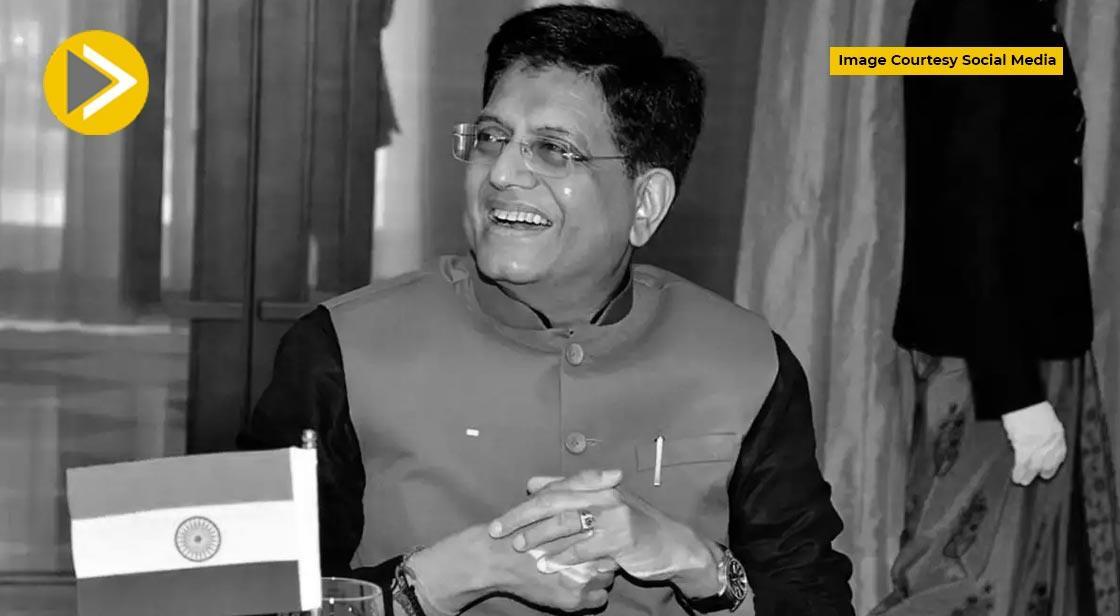India Inks Historic Free Trade Agreement with European Free Trade Association (EFTA)

News Synopsis
On Sunday, India marked a significant milestone in its trade relations by signing a Free Trade Agreement (FTA) with the European Free Trade Association (EFTA). This agreement, signed by Union Commerce Minister Piyush Goyal, is poised to boost economic ties between India and the four EFTA member nations – Iceland, Liechtenstein, Norway, and Switzerland.
EFTA: Fostering Free Trade in Europe
The European Free Trade Association (EFTA) is a regional economic organization established to promote free trade and economic integration among its member states. Founded in 1960, EFTA currently comprises Iceland, Liechtenstein, Norway, and Switzerland. These nations collaborate to eliminate trade barriers and foster closer economic cooperation.
High-Level Participation Marks Signing Ceremony
The signing ceremony in the national capital witnessed the presence of dignitaries from both sides. Iceland's Foreign Minister, Bjarni Benediktsson, and Liechtenstein's Foreign Minister, Dominique Hasler, arrived earlier on Sunday to participate in the historic event. The Ministry of External Affairs (MEA) spokesperson highlighted the significance of these visits, emphasizing their potential to strengthen economic and commercial partnerships between India and Iceland and Liechtenstein, respectively.
A Culmination of 15 Years of Negotiations
The signing of the Trade and Economic Participation Agreement (TEPA) marks the successful conclusion of negotiations that began 15 years ago. This comprehensive agreement involved 20 rounds of discussions, reflecting the commitment of both India and EFTA to achieve a mutually beneficial outcome. Recent months have seen a surge in engagement between the two parties, underscoring their shared desire to finalize the TEPA negotiations.
Prime Minister Modi Hails the Agreement
Prime Minister Narendra Modi extended his congratulations to the negotiators and signatories involved in finalizing the TEPA. In a letter, he expressed his hope that this agreement "marks the beginning of a new chapter in the journey of our nations toward a more prosperous future for us all."
The India-EFTA TEPA is expected to significantly enhance trade and investment flows between the signatory nations. By eliminating or reducing tariffs on a wide range of goods and services, this agreement is expected to create new business opportunities and stimulate economic growth for all parties involved.
What is the European Free Trade Association (EFTA)?
The European Free Trade Association (EFTA) is a regional trade organization comprised of four European countries: Iceland, Liechtenstein, Norway, and Switzerland. Established in 1960, its primary goal is to promote free trade and economic integration among its member states.
Here's a breakdown of EFTA's key characteristics:
Membership: Currently, EFTA consists of Iceland, Liechtenstein, Norway, and Switzerland.
Objectives of EFTA:
EFTA aims to eliminate trade barriers between member countries, facilitating the free movement of goods, services, capital, and labor. This fosters closer economic cooperation and strengthens the economies of member states.
History of EFTA:
Founded in 1960, EFTA served as an alternative for European nations hesitant or unable to join the European Economic Community (EEC), the precursor to the European Union (EU).
EFTA Relationship with the EU:
While not part of the EU, all EFTA members participate in the European Single Market, granting them access to the free movement of goods, services, people, and capital within the vast European market. However, they are not part of the EU's customs union and do not have a say in shaping EU regulations.
Here are some additional points to consider:
-
Trade Agreements: EFTA has established free trade agreements with numerous countries and regional blocs beyond the EU, creating a wider network for trade opportunities for its members.
-
Economic Significance: Despite its smaller size compared to the EU, EFTA member states represent highly developed, open economies with a strong focus on international trade.
In essence, EFTA serves as a platform for its members to enjoy the benefits of free trade and economic integration in Europe, while maintaining some degree of autonomy compared to full EU membership.
In summary, the signing of the FTA between India and EFTA represents a significant milestone in their economic collaboration. The agreement is poised to open avenues for increased trade, economic cooperation, and mutual benefits.
You May Like









